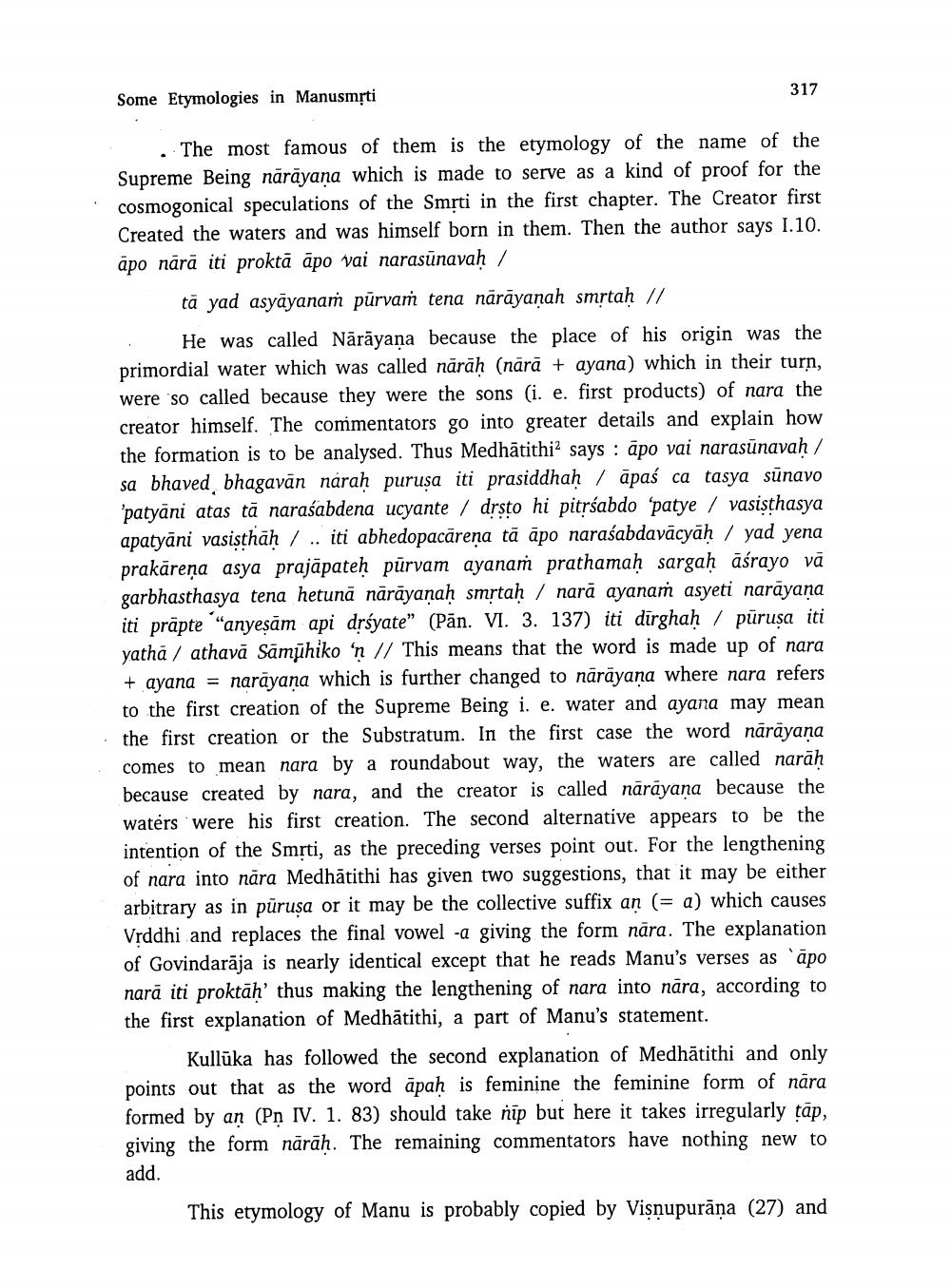________________
Some Etymologies in Manusmrti
317
. The most famous of them is the etymology of the name of the Supreme Being nārāyana which is made to serve as a kind of proof for the cosmogonical speculations of the Smrti in the first chapter. The Creator first Created the waters and was himself born in them. Then the author says 1.10. äpo nārā iti proktā āpo vai narasūnavaḥ /
tā yad asyāyanaṁ pūrvam tena nārāyanah smrtah //
He was called Nārāyana because the place of his origin was the primordial water which was called nārāh (nārā + ayana) which in their turn, were so called because they were the sons (i. e. first products) of nara the creator himself. The commentators go into greater details and explain how the formation is to be analysed. Thus Medhātithi says : apo vai narasūnavah / sa bhaved, bhagavān naraḥ puruşa iti prasiddhaḥ, āpaś ca tasya sūnavo 'patyāni atas tā naraśabdena ucyante / drsto hi pitrśabdo patye / vasisthasya apatyāni vasisthah / .. iti abhedopacarena tā āpo naraśabdavācyāh / yad yena prakāreņa asya prajāpateḥ pūrvam ayanaṁ prathamaḥ sargaḥ āśrayo vā garbhasthasya tena hetunā nārāyanaḥ smrtaḥ / narā ayanam asyeti narāyana iti prāpte "anyesam api drśyate" (Pān. VI. 3. 137) iti dirghah / pūrusa iti yatha / athavā Sāmühiko 'n // This means that the word is made up of nara + ayana = narayana which is further changed to nārāyana where nara refers to the first creation of the Supreme Being i. e. water and ayana may mean the first creation or the Substratum. In the first case the word nārāyana comes to mean nara by a roundabout way, the waters are called narāh because created by nara, and the creator is called nārāyana because the waters were his first creation. The second alternative appears to be the intention of the Smrti, as the preceding verses point out. For the lengthening of nara into nāra Medhātithi has given two suggestions, that it may be either arbitrary as in pūrusa or it may be the collective suffix an (= a) which causes Vrddhi and replaces the final vowel -a giving the form nāra. The explanation of Govindarāja is nearly identical except that he reads Manu's verses as 'āpo narā iti proktāh' thus making the lengthening of nara into nāra, according to the first explanation of Medhātithi, a part of Manu's statement.
Kullūka has followed the second explanation of Medhātithi and only points out that as the word āpaḥ is feminine the feminine form of nāra formed by an (Pņ IV. 1. 83) should take nīp but here it takes irregularly tāp, giving the form nārāḥ. The remaining commentators have nothing new to add.
This etymology of Manu is probably copied by Visnupurāna (27) and




